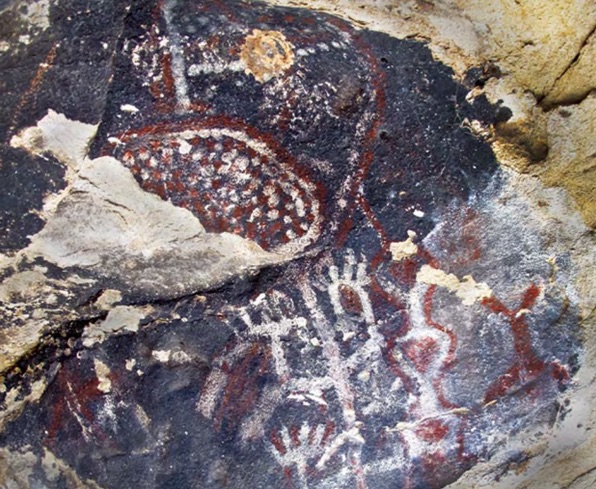The Battle for Chumash Identity
Cultural Identity Is Not Up to Anthropologists (or Journalists)

On December 23, 2019, the Los Angeles Times published an article titled “He claimed Chumash ancestry and raised millions. But experts say he’s not Chumash,” in reference to the Wishtoyo Chumash Foundation in Malibu. The authors framed this as a “Gotcha!” piece, citing their own research and the work of experts Dr. Brian Haley (cultural anthropologist, SUNY Oneonta) and Dr. John Johnson (curator of anthropology, Santa Barbara Museum of Natural History) to “prove” that Mati Waiya, Wishtoyo’s founder, is not Chumash. The evidence presented to dispute claims of Chumash ancestry includes Spanish mission records, ethnohistorical information, and genealogical records.
In our opinion, this old colonialist narrative that “experts” (non-Native anthropologists and journalists) determine cultural identity is unethical and often politically motivated. Haley has a long history of this type of divisiveness in Chumash territory. In 1997, Haley and Larry Wilcoxon wrote an article in Current Anthropology (38:761-794) suggesting that anthropologists act as “gatekeepers” of Indian “authenticity,” an argument the L.A. Times recently repackaged as news. In 1998, Jon Erlandson and other experts wrote lengthy and detailed rebuttals of Haley and Wilcoxon’s arguments. Curiously, the L.A. Times did not mention this controversy or quote these experts.
Erlandson wrote, in part: “Because of their unique history, virtually all Chumash are also descended in part from non-Chumash — white, Hispanic, other Native American, and so on. Over the years, many Chumash people have openly discussed their multicultural heritage with me … . In fact, anthropologists and others have sometimes encouraged the factionalization of the Chumash community by spreading rumors and innuendo about individuals, families, or groups. Such acts can be seen as modern examples of the divide-and-conquer strategies used for centuries by Europeans against North American societies.” [emphasis added] (Current Anthropology 39(4):477-485).
The historical documentation cited by the authors as “proof” of non-Chumash ancestry is deeply problematic. The Spanish mission’s birth and baptismal records, etc. provide invaluable information about marriage ties, familial lineages, pre-colonial Chumash lifeways, and the carnage caused by European colonization. Despite their importance, however, these sources cannot prove someone is not Chumash. Some Native people chose not to enter the Spanish Mission system, and those that did undoubtedly were not always truthful to the padres that many considered their enslavers.
The complicated history of European genocide on the Chumash and other Native peoples in the Americas cannot be underestimated. In California, the subjugation of Native peoples that began in the Mission Period continued well into the later Mexican and American Periods. Much more could be said on this history, but our point here is that it was often not safe to claim Native ancestry.
In an edited volume on the archaeology of California’s islands, An Archaeology of Abundance: Reevaluating the Marginality of California’s Islands (2019), we re-evaluated long-held ideas, often based on Spanish and early ethnohistoric accounts, about the history of Chumash, Tongva, and others, in light of recent archaeological data. We highlight how important it is to think critically about the circumstances under which historical documents were created and how they are interpreted.
We have seen this situation play out before, to the detriment of indigenous families who have lived in California for 250-plus years and intermarried with the Chumash and other Southern California Native peoples. The old “prove your ancestry” take the L.A. Times perpetuates here seems unusual, and often follows the marked success of one indigenous group or another, as well as litigation by Native peoples trying to stop powerful political and economic interests.
In this day and age — on the 250th anniversary of the Spanish and European invasion of California — cultural identity should not be determined by anthropologists or journalists. Cultural identity and Native affiliation should be determined by their own communities, in negotiation with state and federal officials obligated to deal with Native groups on a nation-to-nation basis.
The Wishtoyo Chumash Foundation is a nonprofit 501(c)(3) Native organization actively working to educate indigenous youth, restore traditional lands decimated by centuries of ecological degradation at the hands of colonial forces, and revive traditional ecological knowledge and practices in coastal Southern California. As with many other Chumash and Native groups in the area, we support their mission of indigenous sovereignty and self-determination.
Kristina Gill and Jon Erlandson, of the University of Oregon Museum of Natural and Cultural History, received their PhDs at UC Santa Barbara.



